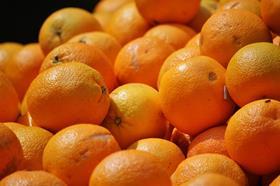
Researchers from the Catalan Institute of Chemical Research (ICIQ) have devised a way of producing plastics from citrus peel that could replace controversial chemical Bisphenol A, which has been found by several studies to be harmful to health.
Limonene is a colourless liquid hydrocarbon that is extracted from the oil found in citrus peel. Professor Arjan Kleij, who led the project, told Spanish daily La Vanguardia that the team was looking for a safer, more sustainable alternative to Bisphenol, which has been banned in a number of countries for its carcinogenic and hormone disrupting effects.
“My group has developed a catalytic process that allows the controlled coupling between carbon dioxide and limonene, both renewable substances, to form a polycarbonate which, compared to the current ones, is more sustainable, less toxic, and obtains from an abundant product in the nature and totally renewable,” Kleij said.
Bisphenol has been used commercially since 1957 and is employed to make a variety of consumer goods including water bottles, CDs and DVDs.
The new citrus polycarbonate also has better thermal properties than the present alternatives which means the plastics manufactured from it has a higher decomposition temperature that makes it safer for daily use.
And because it is made with natural compounds it is fully biodegradable.
Citrus bioplastics have already attracted a high level of interest from industry, including a company that manufactures coatings and adhesives destined for food packaging.
The team is now study more of the polymer’s properties – such as mechanics and resistance – in an attempt to find wider uses for it.



